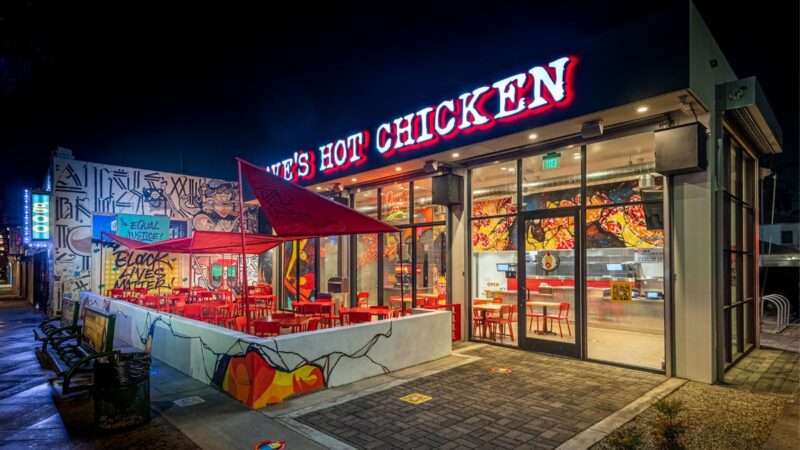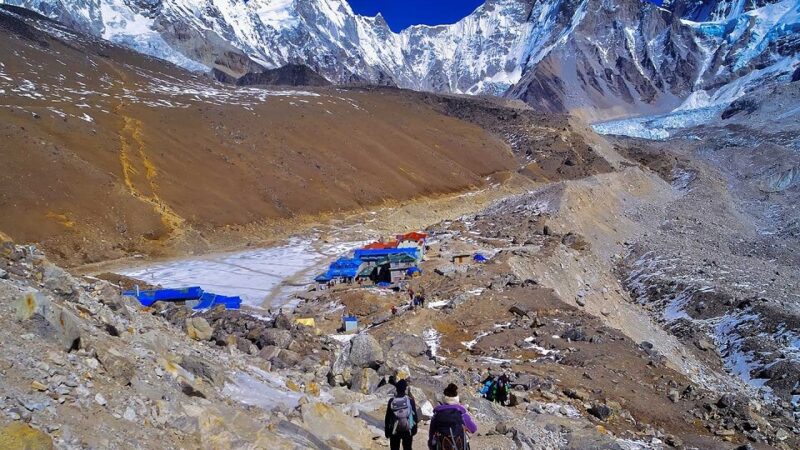Why Canada Is Becoming a Top Tourist Destination
For far too long, Canada has been a bit of a tourist afterthought, its proximity to the United States meaning it unfairly got the label of ‘the 51st state’. However, because of various reasons that we won’t go into here, America has become a bit less appealing on the traveller’s to-do list, at least for the time being.
Having said that, flying over the pond to the North American continent is still completely worth it because Canada has everything you could want, even things you didn’t know you wanted. From beautiful natural wonders to exciting, vibrant cities and quaint coastal towns, Canada has it all.
It’s a Little Bit Familiar…
Unlike America, Canada left the British Empire in 1867 on very good terms. In fact, the ‘Red Ensign’ that many British colonies used remained the official flag until the mid-nineteen-sixties. There is a parliamentary government, the Queen is on plenty of the money, and even in the French province of Quebec, you can get away with English without much problem. They even have their own city called London, and this one doesn’t have a police escort going by every ten minutes, or is impossible to get into restaurants because of good reviews.
By far the strongest British influence is the region that is closest geographically. The East coast provinces of Nova Scotia, New Brunswick, Prince Edward Island, and Newfoundland have much in common with the craggy cliffs of Dover and the liveliness of Plymouth. As you will most likely land in Toronto or Montreal (both in a slightly more central region of the country), you have a difficult choice to make of how to continue, whether to go East or West. If you are craving a bit of home, going towards it would be a good call.
And a Whole Lot Different!
Canada is a massive country, and crossing it can be a challenge. While it would be wonderful to say that ‘it’s the journey, not the destination’ there is a lot of space between some of the landmarks and sights, and not all of this space is exciting. If you relish the challenge of trying to cover large distances as quickly as possible (being completely safe and law-abiding, mind you), then you might actually want to try driving across the entire nation.
While it is possible to take a train from coast to coast, it is certainly not the quickest way to cross the country, and some of the most scenic bits are all bunched up at the ends of the country. The prairie provinces of Manitoba, Saskatchewan and Alberta supply the entire continent with plenty of food, but they won’t exactly supply you with exciting scenery.
Around the border of Alberta and British Columbia, however, things get very interesting indeed. Here is the beginning of the Rocky Mountains, a nearly 5,000 kilometre mountain range that cuts right through Canada and America.
The Trans-Canada highway snakes right through them, and nowhere is it more breathtaking than between the two towns of Banff and Lake Louise. This area is a complete tourist destination, with luxury hotels, breathtaking views and plenty of winter sports. It is only a two-hour drive from Calgary, the largest city in Alberta.
It is recommended then, that while you might be flying from destination to destination in Canada, you should get a car and drive from Calgary and then through the rocky mountains and the British Columbia interior to Vancouver. The trek is long and winding, but unforgettable.
The Big Three Cities
After Paris, Montreal is the largest French-speaking city on earth, and it certainly shares plenty of the charms you would find in Paris. Wide boulevards, plenty of bridges, historic buildings, and plenty of culture.
The Montreal Museum of Fine Arts is the largest in the country, as well as the oldest, with a very impressive collection that spans centuries. It is located in the area known as the Golden Mile, which, over a century ago, was a neighbourhood where the wealthiest families in all of Canada had their estates. Many of them have been demolished, but those that remain have been refurbished as historical and cultural landmarks.
Between museums and excellent parks, you will need a bite to eat, and the food in Montreal is easily the best in the country. The French influence is certainly strong in this regard, as it will be easy to find exquisite Michelin-rated restaurants, but even going to delis for smoked meat sandwiches is a real treat.
Toronto is five hours from Montreal by car, and a bit longer by train. While it is Canada’s largest city, some might find that it lacks the energy or history of Montreal. Instead, the charm of Toronto reveals itself slowly, as you really have to explore the small neighbourhoods that dot the metropolis.
The fact that over half the population is not from Canada means the multicultural influence is very strong. Finding authentic [insert nation here] cuisine is easy because there is always going to be a community diaspora. The CN Tower is easily the best-known landmark, but a day trip to Niagara Falls is also a good idea.
Vancouver is a five-hour flight from Toronto, and the drive is three days if you aren’t stopping for anything, including speed limits. Frequently voted one of the best cities to live in, the result of its very high housing prices, so just visiting for a few days is a great way to get a taste. Its location on (almost) the Pacific coast means the Asian cultural influence is strong.
The scenery is unparalleled even from downtown, as the coastal mountains loom large. The famous Sea-to-Sky highway leads tourists and skiers north of the city to Whistler resort, and along one of the most scenic drives in the world along a mountainous coast. The city is also a springboard for some wonderful camping and small-town living experiences on Vancouver Island, which is accessible by ferry and airplane (and also houses the province’s capital, Victoria).






